
Professor Jonna Kuntsi PhD
Professor of Developmental Disorders and Neuropsychiatry
Research interests
- Mental Health
- Neuroscience
- Psychiatry
Biography
Jonna Kuntsi is Professor of Developmental Disorders and Neuropsychiatry at the Social, Genetic & Developmental Psychiatry (SGDP) Centre at the Institute of Psychiatry, Psychology & Neuroscience. She first joined the Centre as a Lecturer, following training (BSc, MSc, PhD) and positions at University College London and the Great Ormond Street Hospital for Children. Her research focuses on attention deficit hyperactivity disorder (ADHD) and other conditions and traits that often co-occur with ADHD.
Research interests
- Neurodevelopmental disorders, especially ADHD
- Remote measurement technology for ADHD and related conditions
- Developmental trajectories
- Preterm birth and ADHD
- Co-occurrence of ADHD symptoms with other conditions and traits
- Effects of physical activity on cognition, brain function and ADHD symptoms
Teaching
- Teaching on neurodevelopmental disorders on BSc and MSc courses
- Chair of the PhD Subcommittee (Departments of Social, Genetic & Developmental Psychiatry and Biostatistics & Health Informatics)
Expertise and public engagement
A major focus currently is the ADHD Remote Technology (ART) research programme, for which Jonna and team have received £4 million funding from the UK Medical Research Council and European Commission for projects on a range of topics (e.g. ART-transition and ART-CARMA).
She is Co-Chair of EUNETHYDIS - the European Network for ADHD – and a member of the associated European ADHD Guideline Group (EAGG). Jonna is on the steering committee/Principal Investigator also in several other international research networks, including the International Multi-centre Persistent ADHD Collaboration ‘IMpACT’, the ECNP ADHD across the Lifespan Network and the ECNP Digital Health Applied to the Clinical Research of Brain Disorders Network.
She actively collaborates with patient support organisations, including ADHD Europe and the UK ADHD Information and Support Service (ADDISS), and with SMEs, such as Empatica and The Hyve.
Research
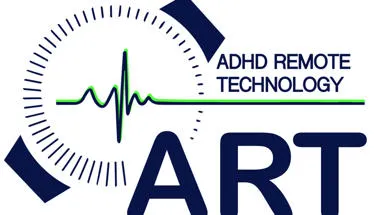
ADHD Remote Technology (ART)
The ADHD Remote Technology (ART) research programme focuses on the development and application of a novel remote measurement technology system for ADHD
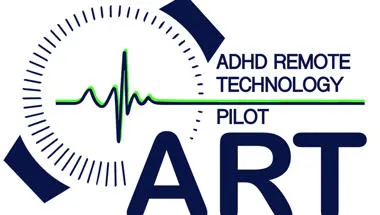
ART-pilot
The ADHD Remote Technology pilot feasibility study (ART-pilot) involves the initial development stages of the new remote measurement technology system for ADHD
Project status: Completed
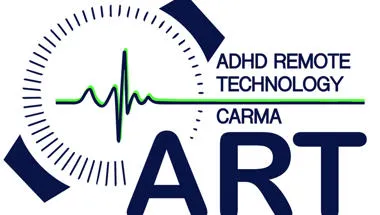
ART-CARMA – The ADHD Remote Technology study of cardiometabolic risk factors and medication adherence
ART-CARMA, the ADHD Remote Technology study of cardiometabolic risk factors and medication adherence, is a large remote monitoring project on adults with ADHD.
Project status: Ongoing
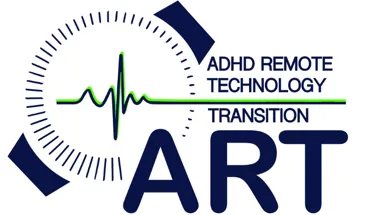
ART-transition - ADHD Remote Technology and ADHD transition: predicting and preventing negative outcomes
ADHD Remote Technology and ADHD transition: predicting and preventing negative outcomes (ART-transition) is a five-year MRC-funded research programme.
Project status: Ongoing
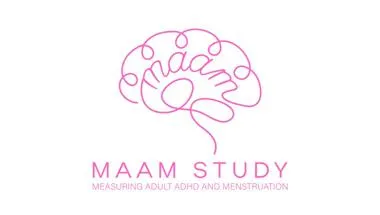
MAAM – Measuring Adult ADHD and Menstruation Study
The Measuring Adult ADHD and Menstruation (MAAM) Study is a collaborative project on women with ADHD between Queen Mary University of London and King’s.
Project status: Ongoing

ART-pilot
The ADHD Remote Technology pilot feasibility study (ART-pilot) involves the initial development stages of the new remote measurement technology system for ADHD
Project status: Completed
News
£2.5m funding to study transition to adulthood for individuals with ADHD
The Medical Research Council (MRC) has awarded £2.5 million funding to principal investigator, Professor Jonna Kuntsi, and team to use remote technology to...

A new generation of Inspiring Women at the IoPPN
28 new portraits of internationally recognised female professors at the Faculty have been added to IoPPN’s ‘Inspiring Women’ exhibition, celebrating the...

IoPPN to collaborate on new MRC funded project to investigate ADHD among women
The Medical Research Council (MRC) has awarded funding to co-investigators Professor Jonna Kuntsi and Professor Richard Dobson at the Institute of Psychiatry,...

Younger children in a school class at greater risk of long-term negative outcomes like low educational achievement and substance misuse
Being young in a school class – puts a child at a long-term disadvantage compared to their older peers. Researchers are now calling for greater flexibility...

ART-CARMA Clinical Study part of 6m Euro global programme
The EU funded project will utilise new wearable technology and smartphone apps to obtain real time data from adults with ADHD

Features
The power of international networks in ADHD research and clinical impact
Professor Jonna Kuntsi shares the value of international professional networks in advancing ADHD research, fostering collaborations and mentoring early career...

Research

ADHD Remote Technology (ART)
The ADHD Remote Technology (ART) research programme focuses on the development and application of a novel remote measurement technology system for ADHD

ART-pilot
The ADHD Remote Technology pilot feasibility study (ART-pilot) involves the initial development stages of the new remote measurement technology system for ADHD
Project status: Completed

ART-CARMA – The ADHD Remote Technology study of cardiometabolic risk factors and medication adherence
ART-CARMA, the ADHD Remote Technology study of cardiometabolic risk factors and medication adherence, is a large remote monitoring project on adults with ADHD.
Project status: Ongoing

ART-transition - ADHD Remote Technology and ADHD transition: predicting and preventing negative outcomes
ADHD Remote Technology and ADHD transition: predicting and preventing negative outcomes (ART-transition) is a five-year MRC-funded research programme.
Project status: Ongoing

MAAM – Measuring Adult ADHD and Menstruation Study
The Measuring Adult ADHD and Menstruation (MAAM) Study is a collaborative project on women with ADHD between Queen Mary University of London and King’s.
Project status: Ongoing

ART-pilot
The ADHD Remote Technology pilot feasibility study (ART-pilot) involves the initial development stages of the new remote measurement technology system for ADHD
Project status: Completed
News
£2.5m funding to study transition to adulthood for individuals with ADHD
The Medical Research Council (MRC) has awarded £2.5 million funding to principal investigator, Professor Jonna Kuntsi, and team to use remote technology to...

A new generation of Inspiring Women at the IoPPN
28 new portraits of internationally recognised female professors at the Faculty have been added to IoPPN’s ‘Inspiring Women’ exhibition, celebrating the...

IoPPN to collaborate on new MRC funded project to investigate ADHD among women
The Medical Research Council (MRC) has awarded funding to co-investigators Professor Jonna Kuntsi and Professor Richard Dobson at the Institute of Psychiatry,...

Younger children in a school class at greater risk of long-term negative outcomes like low educational achievement and substance misuse
Being young in a school class – puts a child at a long-term disadvantage compared to their older peers. Researchers are now calling for greater flexibility...

ART-CARMA Clinical Study part of 6m Euro global programme
The EU funded project will utilise new wearable technology and smartphone apps to obtain real time data from adults with ADHD

Features
The power of international networks in ADHD research and clinical impact
Professor Jonna Kuntsi shares the value of international professional networks in advancing ADHD research, fostering collaborations and mentoring early career...

